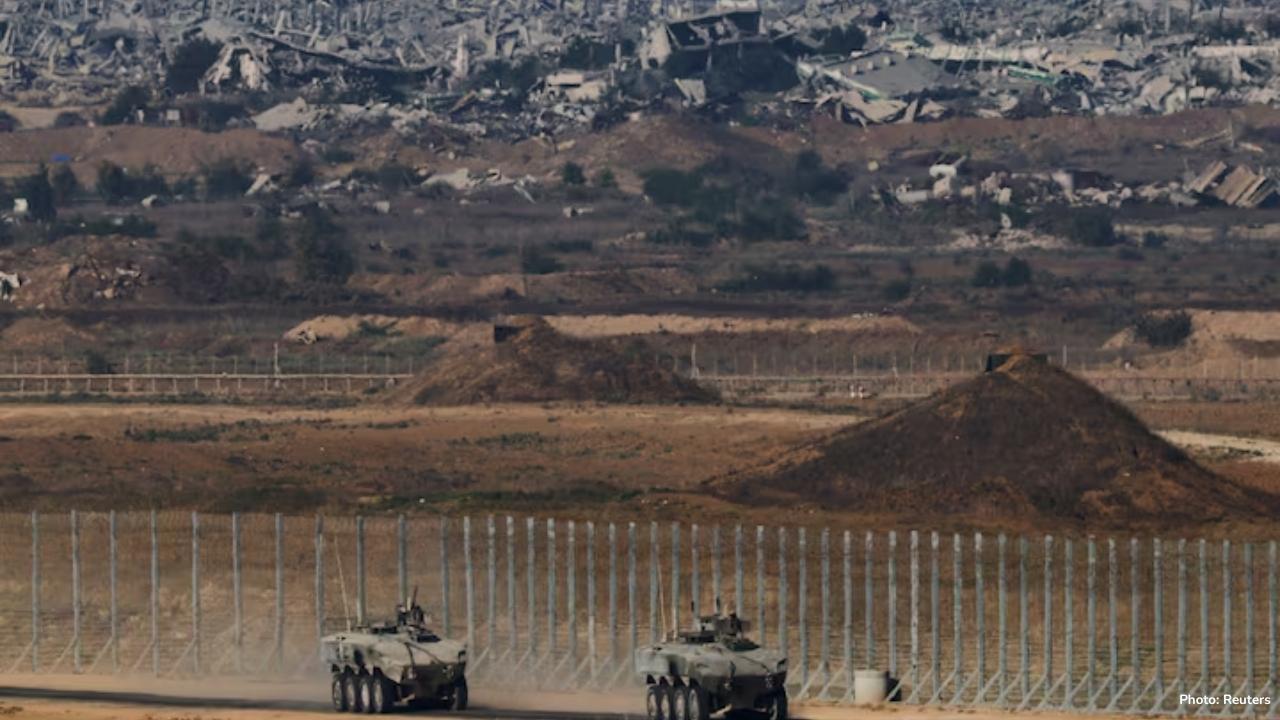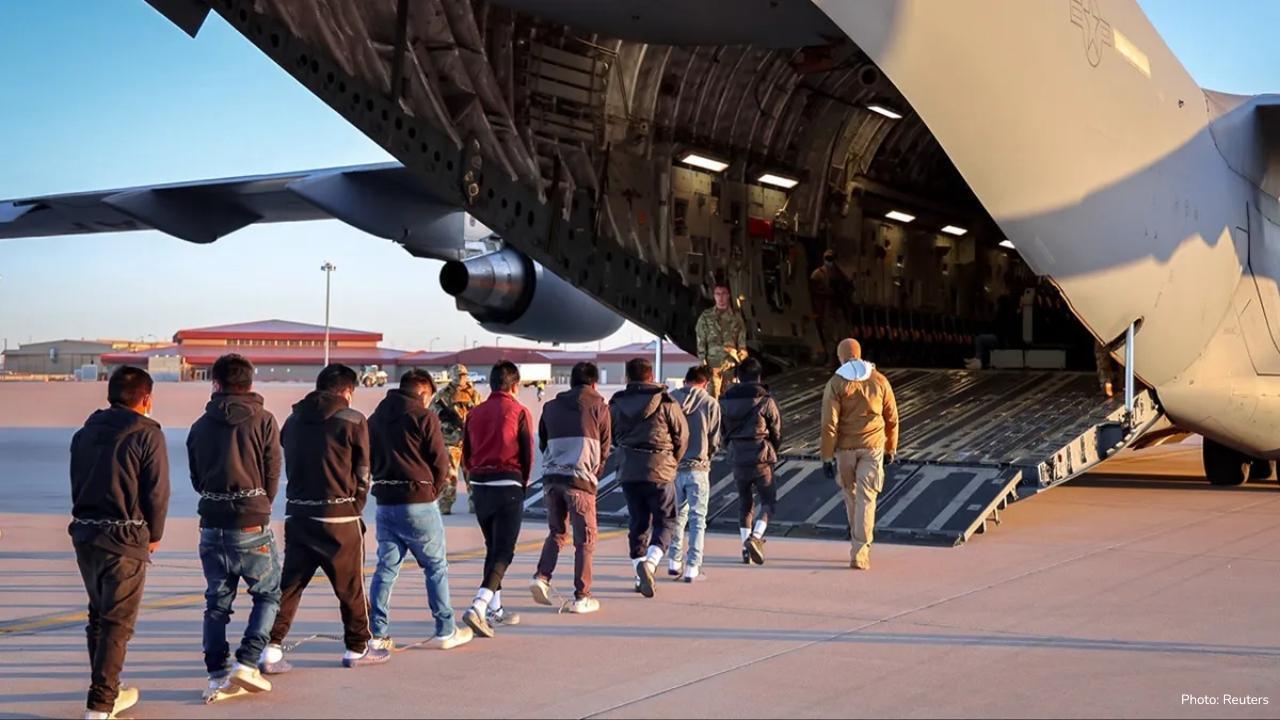
Post by : Monika
On October 1, 2025, the Pentagon announced a significant change in its military operations in Iraq. The United States is reducing its military presence in the country and shifting the responsibility for combating the remnants of the Islamic State (ISIS) to the Iraqi government. This decision marks a major shift in U.S. military strategy in the Middle East.
Background of the Change
The U.S. military has been involved in Iraq since 2014, when it joined a coalition of countries to help the Iraqi government fight ISIS. At the beginning of 2025, there were approximately 2,500 U.S. troops stationed in Iraq and over 900 in neighboring Syria. The mission was primarily focused on defeating ISIS, which had taken control of large parts of both countries.
However, over the past few years, ISIS has been largely defeated in Iraq. While the group still poses a threat in some areas, it no longer controls significant territory or has the same level of influence it once did. As a result, the Pentagon has decided that the Iraqi government is now capable of leading the efforts to combat ISIS within its own borders.
Details of the New Plan
Under the new plan, the U.S. and its coalition allies will focus their efforts on combating ISIS remnants in Syria, where the group continues to operate in certain regions. Most U.S. personnel will be relocated to Iraq's Kurdistan region, particularly the city of Erbil, to support these operations. The total number of U.S. forces in Iraq will be reduced to fewer than 2,000, with the majority stationed in Erbil. The exact number and timeline for this transition have not yet been determined.
U.S. troops remaining in Baghdad will no longer be involved in direct combat operations against ISIS. Instead, they will focus on bilateral security cooperation with the Iraqi government. This includes providing training and assistance to Iraqi security forces and supporting efforts to maintain stability in the country.
Reasons for the Shift
A senior U.S. defense official stated that ISIS no longer poses a sustained threat to the government of Iraq or to the U.S. homeland from Iraqi territory. This assessment is based on the significant progress made in defeating ISIS in Iraq over the past several years. The official emphasized that the transition to Iraqi-led security efforts is a major achievement and reflects the success of the U.S.-Iraq partnership.
The decision to scale back the U.S. military presence is also seen as a response to concerns within the Iraqi government. Some Iraqi officials have expressed apprehension that the continued presence of U.S. troops could attract instability and make them targets for groups aligned with Iran. By reducing the number of U.S. forces and shifting their focus, the Pentagon aims to address these concerns while still supporting Iraq's efforts to combat terrorism.
Ongoing Operations in Syria
While the U.S. is reducing its presence in Iraq, it will maintain its operations in Syria. The situation in Syria remains volatile, with ISIS and other extremist groups continuing to operate in certain areas. The U.S. military will continue to work with local partners in Syria to combat these threats and prevent the resurgence of ISIS.
The decision to maintain a presence in Syria is also influenced by recent developments in the region. Syrian President Ahmed al-Sharaa's recent overthrow of Bashar al-Assad has further complicated the security dynamics in the country. The U.S. aims to ensure that ISIS does not regain a foothold in Syria and that the region does not become a safe haven for extremist groups.
Implications for U.S.-Iraq Relations
The scaling back of the U.S. military mission in Iraq is seen as a positive development in the bilateral relationship between the two countries. It reflects the growing capabilities of the Iraqi security forces and their increasing responsibility for maintaining security within their own borders. The U.S. will continue to provide support and assistance to Iraq, but the primary responsibility for security will now lie with the Iraqi government.
This shift also aligns with broader U.S. foreign policy goals of reducing direct military involvement in the Middle East and encouraging local governments to take the lead in addressing security challenges. By transitioning to an advisory and support role, the U.S. aims to foster greater stability and self-reliance in the region.
Future Outlook
The Pentagon has not provided a specific timeline for the completion of the transition in Iraq. The process will depend on various factors, including the readiness of Iraqi security forces and the security situation on the ground. The U.S. will continue to assess the situation and make adjustments as necessary to ensure that both Iraq and the broader region remain secure.
In the meantime, the U.S. military will continue its operations in Syria, focusing on counterterrorism efforts and supporting local partners. The situation in Syria remains complex, and the U.S. remains committed to addressing the threats posed by ISIS and other extremist groups.
The Pentagon's decision to scale back its military mission in Iraq represents a significant shift in U.S. strategy in the Middle East. By transferring the responsibility for combating ISIS to the Iraqi government and focusing more on Syria, the U.S. aims to support Iraq's efforts to maintain security while addressing ongoing threats in the region. This transition reflects the progress made in defeating ISIS in Iraq and the growing capabilities of Iraqi security forces.
As the situation in both Iraq and Syria continues to evolve, the U.S. will remain engaged in the region, providing support and assistance to its partners. The goal is to ensure that the gains made in the fight against ISIS are sustained and that the region remains secure and stable.
Pentagon Iraq U.S. military










Bollywood Stars Sue Google Over AI Videos Misusing Their Image
Bollywood actors Abhishek Bachchan and Aishwarya Rai Bachchan have filed a lawsuit against Google, s

India's Central Bank Keeps Interest Rate Unchanged at 5.50%
India's Reserve Bank holds repo rate at 5.50%, indicating potential rate cut in December amid low in

Trump's Gaza Peace Plan: Ceasefire, Hostage Exchange, and Future Governance
President Trump's 20-point plan aims to end the Gaza conflict with ceasefire, hostage exchange, and

Israeli Tech Sector Grows Amid Gaza Conflict
Despite the ongoing Gaza war, Israel's high-tech industry thrives in 2025, with increased funding an

Global Markets React to China's Economic Slowdown and Policy Changes
Global markets face uncertainty as China's economic slowdown and policy changes impact investor conf

Gaza Aid Flotilla Faces Unidentified Vessels, Enhances Security
Global Sumud Flotilla reports unlit boats approaching, prompting increased safety measures as they d